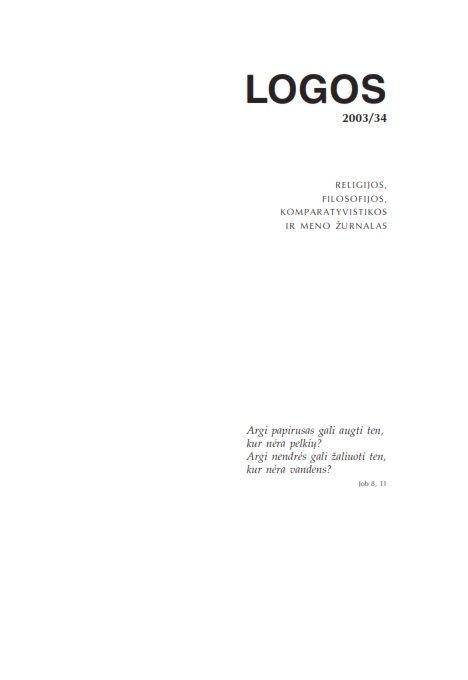Neklasikinio mąstymo principai Kierkegaard'o „Egzistencinės krizės” filosofijoje
Non-Classical Principles of Thinking in Kierkegaard’s “Existential Crisis Philosophy”
Author(s): Antanas AndrijauskasSubject(s): Epistemology, Social Philosophy, 19th Century Philosophy, Existentialism
Published by: Visuomeninė organizacija »LOGOS«
Keywords: Non-classical philosophy; Kierkegaard; existential thinking;
Summary/Abstract: Kierkegaard’s non-classical principles of philosophical thinking are considered in this article. Special attention is given to his radical critique of the Hegelian system. That critique is regarded as more profound in comparison with Schopenhauer’s. Kierkegaard develops his own philosophy of “existential crisis”, opposing subjective will and internal changes to abstract thinking and external influences. His philosophy is that of the internal personal world and of free choice. To the famous motto of Cartesian rationalism cogito ergo sum, he opposes his own statement “I am here and think because I do exist here”. So, the notion of existence becomes fundamental for his philosophical reflections, focused on the topics of personal existence, destiny and perspectives of being. Since personal becoming never stops, the ability to exist is treated as a great art. The aim of genuine philosophy is not a knowledge of the external world but an inquiry into the deepest problems of personal being and creativity, of which the greatest enigma is existence. Hence Kierkegaard gives a new subject and new tasks to philosophy.
Journal: LOGOS - A Journal of Religion, Philosophy, Comparative Cultural Studies and Art
- Issue Year: 2003
- Issue No: 34
- Page Range: 65-75
- Page Count: 11
- Language: Lithuanian

